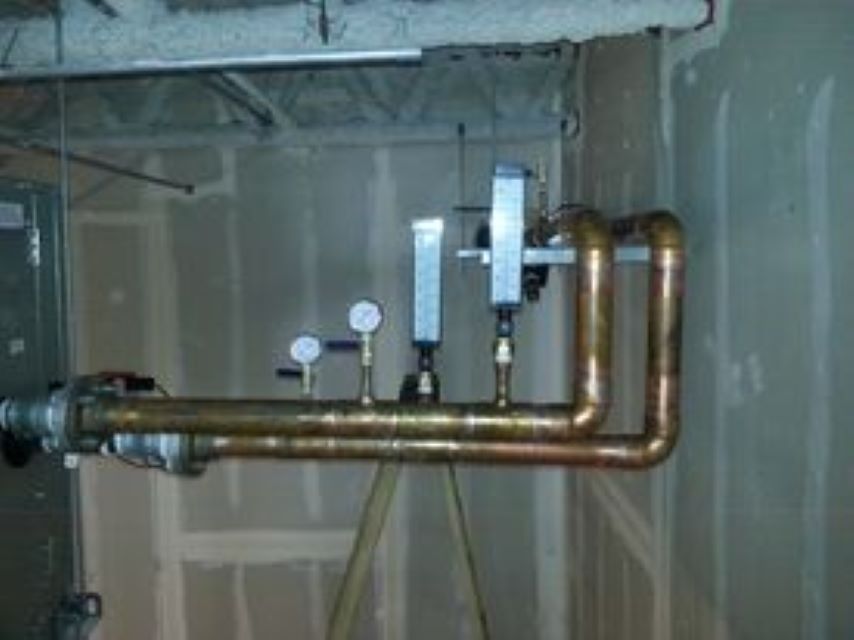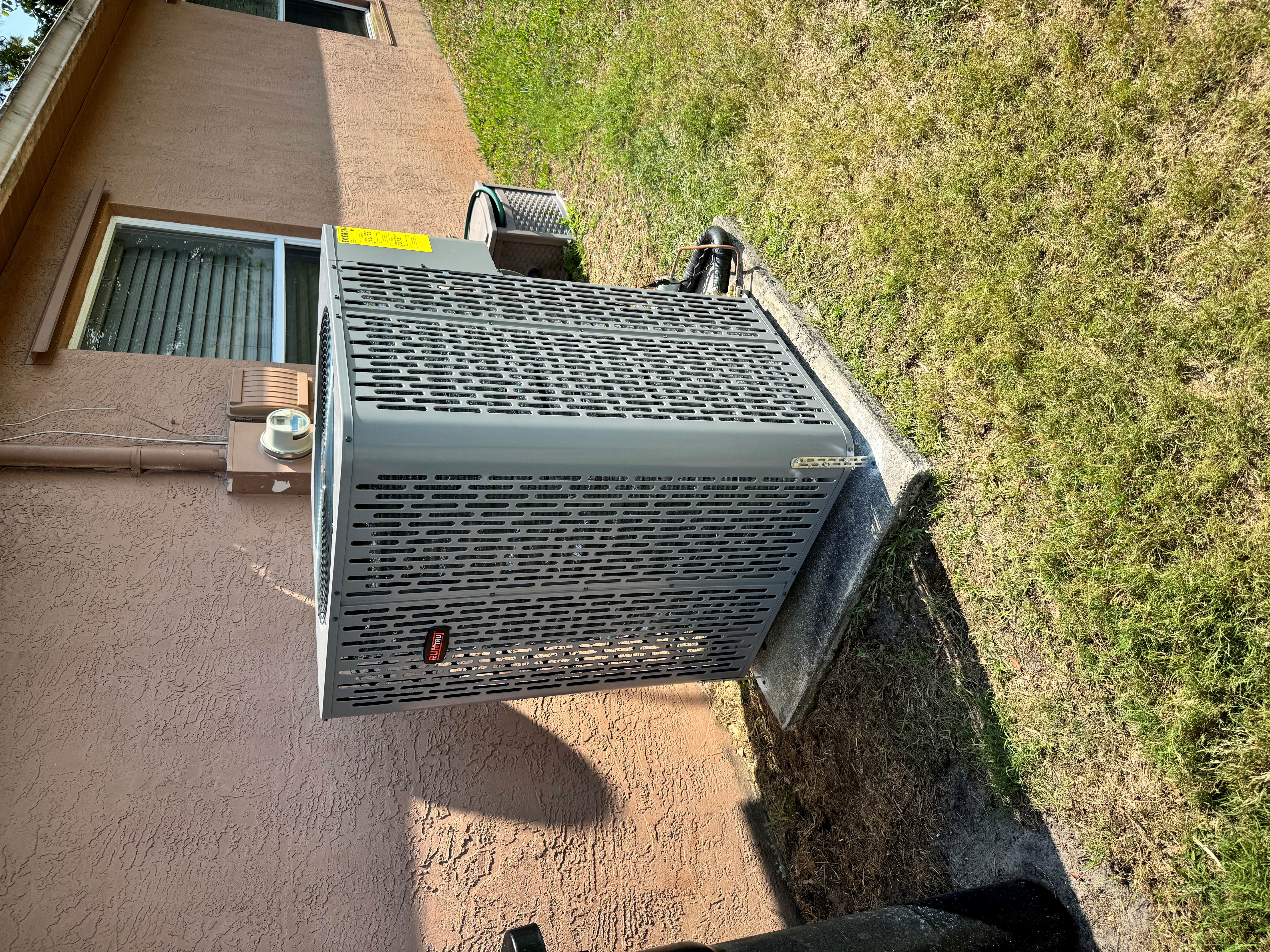
Residential HVAC Systems: What You Need to Know
When it comes to maintaining comfort in your home, residential HVAC systems play a pivotal role. HVAC, which stands for Heating, Ventilation, and Air Conditioning, ensures that your indoor environment remains comfortable regardless of the season. These systems are crucial in regulating the temperature, humidity, and air quality within your home, providing an optimal living environment for you and your family.
Understanding the basics of residential HVAC systems is essential for every homeowner. These systems are typically composed of several key components, including the furnace, air conditioner, heat pump, ductwork, and thermostat. Each of these components works in harmony to deliver heated or cooled air throughout your home. With proper maintenance and care, your HVAC system can provide reliable and efficient service for years to come.
However, choosing the right HVAC system for your home can be a daunting task, given the myriad of options available in the market. Factors such as the size of your home, your local climate, and your specific heating and cooling needs must all be considered to make an informed decision. Consulting with a professional HVAC contractor can help you navigate these choices and ensure that you select a system that meets your needs and budget.
At Harmony Air LLC, we specialize in providing top-notch HVAC solutions to keep your home comfortable all year round. Call now 772-203-2571 to learn more about our services and how we can help you achieve the perfect indoor climate.
Importance of a Reliable HVAC System
A reliable residential HVAC system is more than a luxury; it is a necessity for maintaining a comfortable and healthy living environment. One of the primary benefits of a dependable HVAC system is its ability to provide consistent indoor temperatures. Whether it’s the heat of summer or the chill of winter, a well-functioning HVAC system ensures that your home remains at a comfortable temperature, enhancing your overall quality of life.
Moreover, a reliable HVAC system plays a crucial role in maintaining indoor air quality. Modern HVAC systems are equipped with advanced filtration systems that remove dust, allergens, and other airborne contaminants. This is particularly important for households with individuals who suffer from allergies or respiratory conditions, as clean air can significantly improve their health and well-being.
Energy efficiency is another critical aspect of a reliable HVAC system. Systems that operate efficiently use less energy, which translates to lower utility bills and reduced environmental impact. Investing in an energy-efficient HVAC system can provide long-term savings and contribute to a more sustainable future.
Lastly, the dependability of your HVAC system can prevent unexpected breakdowns and costly repairs. Regular maintenance and timely upgrades can extend the lifespan of your system, ensuring that it operates smoothly and efficiently for years to come. This proactive approach not only saves money but also provides peace of mind, knowing that your home’s comfort is in capable hands.
Components of a Residential HVAC System

A residential HVAC system is comprised of several essential components, each playing a critical role in ensuring your home remains comfortable throughout the year. Understanding these components can help you make informed decisions about maintenance and upgrades.
1. Thermostat: The thermostat is the control center of your HVAC system. It allows you to set and maintain your desired indoor temperature. Modern thermostats often come with programmable settings and smart features, enabling efficient energy management.
2. Furnace: The furnace is responsible for heating your home. It burns fuel (usually natural gas, oil, or electricity) to produce heat, which is then distributed throughout your home via ductwork. Furnaces must be regularly inspected and maintained to ensure safe and efficient operation.
3. Air Conditioner: The air conditioner cools your home by removing heat and humidity from the indoor air. It consists of an outdoor unit (compressor and condenser) and an indoor unit (evaporator coil). Regular maintenance of the air conditioner, including cleaning and checking refrigerant levels, is essential for optimal performance.
4. Ductwork: Ducts are the channels through which heated or cooled air is distributed throughout your home. Properly sealed and insulated ductwork ensures that air is efficiently delivered to each room, minimizing energy loss and enhancing comfort.
5. Heat Pump: In some HVAC systems, a heat pump serves both heating and cooling functions. It transfers heat between the indoors and outdoors, providing an energy-efficient solution for year-round climate control.
6. Air Filters: Air filters trap dust, allergens, and other particles, improving indoor air quality and protecting the HVAC system from damage. Regularly replacing or cleaning air filters is crucial to maintaining system efficiency and air quality.
By understanding these components and their functions, you can better appreciate the complexity and importance of your residential HVAC system, ensuring it serves your home effectively and efficiently.
Maintenance Tips for Home HVAC Systems

Proper maintenance of your home HVAC system is crucial to ensure its longevity, efficiency, and optimal performance. Neglecting regular upkeep can lead to higher energy bills, frequent breakdowns, and a shorter system lifespan. Here are some essential maintenance tips to keep your HVAC system running smoothly:
1. Replace Air Filters Regularly: Air filters should be checked monthly and replaced every 1-3 months, depending on usage and the presence of pets or allergies. Clean filters improve air quality and system efficiency by allowing unobstructed airflow.
2. Schedule Annual Inspections: Professional inspections should be conducted at least once a year. During these visits, technicians can identify and address potential issues, clean essential components, and ensure that your system is operating safely and efficiently.
3. Clean the Condenser Coils: The outdoor condenser unit can accumulate dirt, leaves, and debris, which can obstruct airflow and reduce efficiency. Periodically clean the coils and the surrounding area to maintain optimal performance.
4. Check the Thermostat Settings: Ensure that your thermostat is set to the correct temperature and programmed according to your schedule. Consider upgrading to a smart thermostat for enhanced control and energy savings.
5. Inspect and Seal Ductwork: Leaky ducts can lead to significant energy loss and uneven heating or cooling. Regularly inspect your ductwork for leaks and seal them with appropriate materials to improve system efficiency.
6. Clear the Area Around the Outdoor Unit: Keep the area around the outdoor unit free from obstructions such as plants, shrubs, and debris. This ensures adequate airflow and prevents potential damage to the unit.
7. Monitor Refrigerant Levels: Low refrigerant levels can cause your system to work harder, leading to increased energy consumption and potential damage. Have a professional check and top off refrigerant levels as needed.
By following these maintenance tips, you can significantly extend the life of your HVAC system, reduce energy costs, and ensure a comfortable living environment throughout the year.
Energy Efficiency in Residential HVAC Systems

Improving energy efficiency in residential HVAC systems is not only beneficial for the environment but also for your wallet. Energy-efficient HVAC systems can significantly reduce energy consumption, leading to lower utility bills and a smaller carbon footprint. Here are some key factors and tips to enhance the energy efficiency of your home’s HVAC system:
1. Choose Energy-Efficient Equipment: When purchasing a new HVAC system, look for units with the ENERGY STAR label, which indicates they meet or exceed federal guidelines for energy efficiency. High SEER (Seasonal Energy Efficiency Ratio) ratings for air conditioners and AFUE (Annual Fuel Utilization Efficiency) ratings for furnaces are good indicators of energy-efficient models.
2. Upgrade to a Programmable Thermostat: A programmable or smart thermostat allows you to set temperature schedules that align with your daily routine. This ensures that your HVAC system operates only when needed, reducing energy waste. Some smart thermostats even learn your preferences and adjust settings automatically for optimal efficiency.
3. Seal and Insulate Your Home: Proper insulation and sealing of windows, doors, and ductwork can prevent air leaks, maintaining a consistent indoor temperature and reducing the workload on your HVAC system. This results in less energy consumption and improved comfort.
4. Regular Maintenance: Regular maintenance, such as cleaning or replacing air filters, checking refrigerant levels, and inspecting ductwork, ensures that your HVAC system operates at peak efficiency. Well-maintained systems are less likely to experience issues that can lead to increased energy use.
5. Utilize Ceiling Fans: Ceiling fans can help distribute air more evenly throughout your home, allowing you to set your thermostat a few degrees higher in summer and lower in winter without sacrificing comfort. This can lead to substantial energy savings over time.
6. Consider Zoning Systems: Zoning systems divide your home into different areas, each with its own thermostat. This allows for precise temperature control in individual zones, ensuring that energy is not wasted on heating or cooling unoccupied areas.
By implementing these strategies, you can make your residential HVAC system more energy-efficient, contributing to a more sustainable lifestyle while enjoying significant cost savings on your energy bills.
Choosing the Right HVAC System for Your Home

Choosing the right HVAC system for your home is crucial for ensuring comfort, energy efficiency, and long-term savings. With a variety of options available, it can be challenging to determine which system best suits your needs. Here are some essential considerations to help you make an informed decision:
1. Assess Your Home’s Needs: The size, layout, and insulation of your home play a significant role in determining the appropriate HVAC system. Conduct a thorough assessment or hire a professional to perform a load calculation to understand your home’s heating and cooling requirements.
2. Types of HVAC Systems: There are several types of HVAC systems to choose from, including:
- Central Air Conditioning Systems: Ideal for larger homes, these systems use ductwork to distribute cool air and provide consistent temperature control throughout the house.
- Ductless Mini-Split Systems: These systems are perfect for homes without existing ductwork. They offer flexible installation options and allow for individual room temperature control.
- Heat Pumps: Heat pumps are versatile and energy-efficient, providing both heating and cooling by transferring heat between indoor and outdoor environments.
- Furnaces: Furnaces are a common heating solution, especially in colder climates. They can be powered by gas, oil, or electricity and are often paired with central air conditioning systems.
3. Consider Energy Efficiency: Look for HVAC systems with high energy efficiency ratings, such as SEER for air conditioners and AFUE for furnaces. Energy-efficient systems can lead to substantial savings on utility bills and reduce your environmental impact.
4. Budget and Financing: Determine your budget and explore financing options if necessary. While high-efficiency systems may have a higher upfront cost, they often result in long-term savings through reduced energy consumption and maintenance costs.
5. Professional Installation: Proper installation is vital for the optimal performance of your HVAC system. Choose a reputable and experienced HVAC contractor, like Harmony Air LLC, to ensure your system is installed correctly and operates efficiently.
Investing in the right HVAC system for your home can enhance your comfort, improve indoor air quality, and lead to significant energy savings. If you’re ready to upgrade or install a new HVAC system, call now at 772-203-2571 to schedule a consultation with Harmony Air LLC. Our team of experts is here to help you find the perfect solution for your home.
